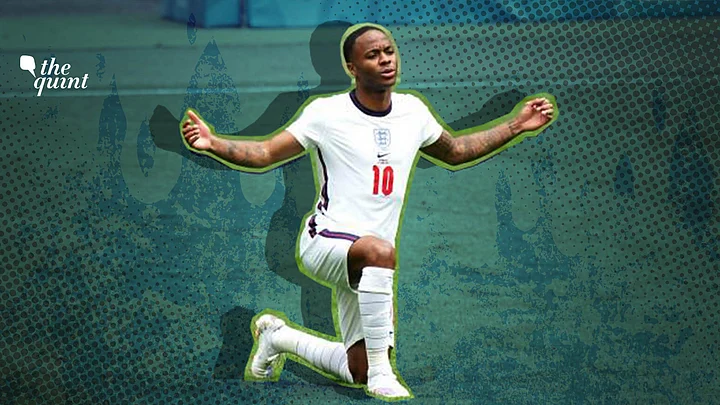The Italians, Spanish, English, and Danish were all firmly behind their national men’s football team as the semi-finals of the delayed Euro 2020 kicked off in London at Wembley on Tuesday. However, not all are in support of the players taking the knee before kick-off.
Ahead of the tournament, UEFA made it clear that they would not interfere in any way.
"We urge spectators to show respect for teams and players taking the knee. Any player who wants to demand equality amongst human beings by taking the knee will be allowed to do so," UEFA said.
While the Italian team’s official line is that they will take the knee if the opposition requests, a chunk of Spanish fans weren’t very happy about the gesture. England’s FA have had to ask their fans, a minority of them, to respect the players’ choice. Denmark on the other hand applauded the gesture but didn’t take part in it.
Expect more chatter over the next match days in London around the anti-racism gesture that became a prominent symbol in sport after American footballer Colin Kaepernick’s took the knee in 2016.
Racism in Football
One cannot turn a blind eye to incidents of racism, especially when almost after every match in professional football, there are complaints about abuses directed at players and sometimes even the families.
Remember when Raheem Sterling bought his mother a house? Or when in 2019, Italy’s Leonardo Bonucci told his then-Juventus colleague Moise Kean it was “50 percent” his fault that he got racially abused by fans.
In France, the President of the Football Federation Noël Le Graët said that racism does not exist after Neymar was called names.
Before the Euros kicked off, Romelu Lukaku, who had a harrowing incident with Inter Milan fans, the club he plays for, lamented that racism is at an all-time high in football.
Taking the knee has become a common sight in many games at the club level but, be that as it may, the problems continue to increase.
Termed as ‘Gesture Politics’
England’s players like Raheem Sterling and Marcus Rashford have been championing the cause against racism in their own ways. And after the first game against Croatia, manager Gareth Southgate said the team was determined "more than ever" to keep taking a knee.
"The most important thing for our players is for them to know we are totally united on it. We're totally committed to supporting each other, supporting the team," he said.
However, British Home Secretary Priti Patel accused the English players of indulging in "gesture politics."
The English Are An Example
The manner in which the English players have conducted themselves amidst hostile fans and those who idolise certain British politicians has been nothing short of impeccable.
A team which has a fair number of black players have displayed compassion, led by captain Jordan Henderson. The current England men’s football team has been among one of the most talked about and followed due to the plethora young exciting talent at their disposal.
And they’ve responded by teaching a generation, maybe more, that there is absolutely nothing wrong in demanding equal treatment even if society places misplaced stereotypical filters.
Football is a sport that is meant to unify and thrill people, and now it’s taken on the role of a mentor too.
Is putting a spanner in the works appropriate, especially at a time when the need to eradicate racism from the roots is becomes more and more evident each the passing day?
Taking the knee is not going to stop the violent disease, nor is a simple statement from UEFA, but it does pave the way for a conversation that needs to be as passionate as the love for the game.
Isn’t that step 1 to the long overdue process to weed out racism, on and off the field?
(At The Quint, we question everything. Play an active role in shaping our journalism by becoming a member today.)
